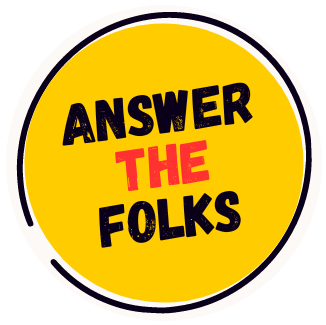More Than Just Small Talk: Effective Responses to “How Have You Been?”
We’ve all been there – running into an old friend or colleague and exchanging pleasantries. One of the first questions they inevitably ask is “How have you been?”. On the surface, it seems like a simple, standard greeting. But there’s an opportunity here for real connection beyond just small talk. With some thoughtful preparation, you can turn this casual question into a chance to catch up in a meaningful way.
Quick Replies:
Don’t want to read the full blog? Then here are some quick whits for you:
- Pretty well, just keeping busy as usual. How about you?
- Hanging in there. Work has been hectic but staying afloat.
- Doing alright, thanks for asking! Always nice catching up even if just for a minute.
- Managing okay so far. How are things with you lately? Hoping all is well.
- Getting by, same old story! Hoping you’re doing well though – it’s been a while.
- Keep on keeping on over here. Things staying busy on your end too I’m sure.
- Alive and kicking! Been swamped with work but keeping my head above water. Are you hanging in?
- Surviving another day – can’t complain too much. Nice seeing you, even if just in passing!
- Hanging in there, ups and downs as usual. Good to chat though – take care and hope to talk again soon.
Read Also: How to Respond to How Was Your Trip
Don’t Just Say “Fine” – Share authentically while keeping it light
The easy but impersonal response is to just say “fine” and move on. But your friend is making an effort to engage with you. Give them something real to work with while still keeping the mood upbeat. You can acknowledge things are going well without dumping all your problems on them.
A simple yet meaningful response is something like “I’ve been keeping busy as usual with my job and family responsibilities. How about yourself – how are things going lately?”.
Responding in this way acknowledges that life is proceeding normally while opening the door for them to share too. It reassures the person asking that you’re doing well at a high level without getting into unnecessary details.
At the same time, redirecting the discussion by asking about them in return helps the natural back-and-forth of conversation to unfold smoothly. This approach allows for an open and balanced exchange of information between both parties.
Open Up Slightly Without Oversharing
Another option is to open up very briefly but not delve too deeply into heavy topics. Share a minor challenge you’ve recently faced or a small victory you’ve had. This gives them a tiny glimpse without being a downer.
A slightly more personal, yet still lighthearted, reply could be something like “It’s definitely been a busy week over here – I just wrapped up a major work project I’m happy to have completed. How have things been going for you recently?”.
Responding in this way shares a brief, truthful detail from your life without oversharing. It conveys to the other person that you’re facing ordinary challenges like anyone else. At the same time, turning the question back around invites them to also open up if desired, creating more of a two-way conversation. With this approach, both parties leave feeling like they connected on a somewhat real level rather than just exchanging superficial pleasantries.
Ask Follow-Up Questions for Truly Meaningful Exchange
But the best way to take this interaction beyond shallow small talk is by turning the question back around and diving a little deeper. Ask them a follow-up question that requires more than a one-word answer and shows you care about the details.
A question you could pose in response is something along the lines of “I’ve been keeping well and staying active. What about you – do you have any enjoyable weekend activities planned or is there any work you’re particularly looking forward to?”
Asking a follow-up question in this way encourages a more meaningful back-and-forth than just brief responses. It invites the other person to share details about their life that you might find interesting or relatable. From there, an engaging dialogue has the potential to organically emerge.
As each party opens up about their experiences, it creates opportunities to discover new shared interests or perspectives you may not have been aware of previously. These points of connection could in turn lay the foundation for further catching up or rekindling your relationship going forward.
Respond in a Way That Feels Natural for You
The key is responding in a way that feels natural for your personality and relationship with the other person. If you’re typically more reserved, don’t force intense emotional disclosure if it makes you uncomfortable. Likewise, avoid flippant one-word answers if being somewhat vulnerable comes easily.
Pay attention to verbal and nonverbal cues to get a sense of how much the other person wants to share. Match their level of openness rather than risk unloading too much too soon. With a little practice, you’ll be able to navigate these small interactions with warmth, depth and ease.
Use the Response as a Chance to Catch Up Effectively
Rather than thinking of it as just a greeting, see this question as an opportunity to genuinely connect or reconnect. Asking for thoughtful follow-ups is a great way to learn what’s really going on in someone’s life beyond surface-level small talk. You may find you have more in common than you realized or ways you can better support each other.
It takes some mental preparation but with experience, responding will become more natural. Have a few stock responses ready depending on your mood. But also be flexible enough to really listen and follow their lead in the conversation. Soon, conversations that could have been brief pleasantries turn into quality bonding time.
Examples of Effective Follow-Up Questions
Now that you have some strategies, here are some specific follow-up questions you could ask:
Career/Education:
- “Any interesting projects/clients keeping you busy at the office lately?”
- “How’s your course load this semester – feeling ready for finals?”
Family:
- “How are the kids/parents doing? Any fun stories from this week?”
- “Any exciting trips or visits coming up?”
Hobbies:
- “Still playing basketball on Saturdays? Anyone give you a hard time last game?”
- “Catch any good concerts/movies lately you’d recommend?”
Home Life:
- “Any home improvements or chore disasters to report?”
- “Feel like you’re settling in well to the new place?”
The goal is to ask just enough to show you care while also giving them space to respond at their own level of detail. With practice, you’ll get better at navigating these common “small talk” questions meaningfully.
Read Also: How to Respond to RSVP
FAQs About Responding Effectively
What if they ask how I’m doing first?
Don’t feel obligated to return the question right away. Share a brief, genuine response first before asking about them. This model is vulnerable.
How can I follow up without feeling nosy?
Focus questions on areas you both likely share – work, family, hobbies. Gage comfort level and back off topics that seem private. Light-hearted curiosity beats interrogation.
What if they give a very short answer?
It’s a cue they may not want to delve deep just now. Refrain from pressing and respect boundaries. Change the subject or revisit connecting later.
How do I respond when I’m not great?
Keep responses relatively positive and move forward-looking. You can say “Hanging in there, just dealing with some things currently” to acknowledge challenges without details.
How often should I follow up with people?
Ideally stay in relatively regular contact, even via social media, with people you value. Check-in a few times per year at a minimum depending on closeness. Quality over quantity.
In Summary
With some thoughtful preparation of open-ended responses and follow-up questions, you can turn brief small talk into quality bonding time.
With practice, gauging comfort levels will become natural and wallflowers may find communicating comes more easily. Remember – showing real care and interest in others through follow-up is key to meaningful exchange.

